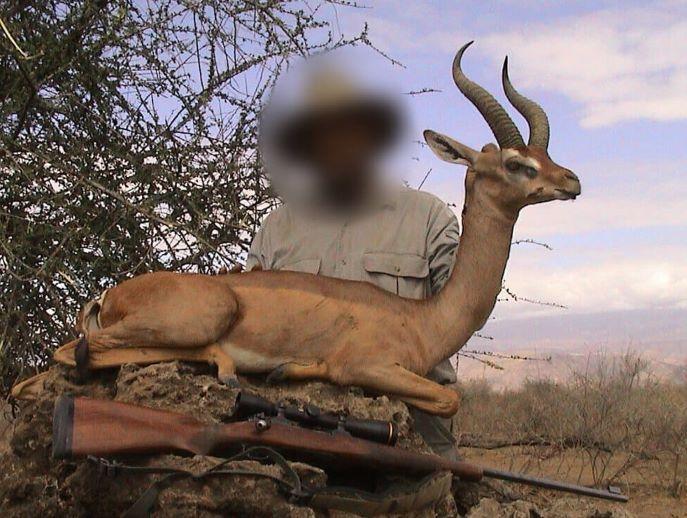Dreaming of a budget African safari doesn’t mean you have to compromise on adventure or cultural discovery. With careful planning, it’s possible to experience Africa’s breathtaking landscapes and rich wildlife without overspending. Many travelers are surprised at how accessible game hunting safaris can be when you choose the right package and destination.
We understand that finding the perfect balance between cost and experience matters. Our budget African safari options let you explore local cultures, visit nearby communities, and enjoy the thrill of the hunt, all while keeping expenses in check. Whether you’re new to hunting or looking for your next affordable adventure, there’s a safari that fits your needs and budget.
[DYNAMIC-BLOGTABLEOFCONTENT]
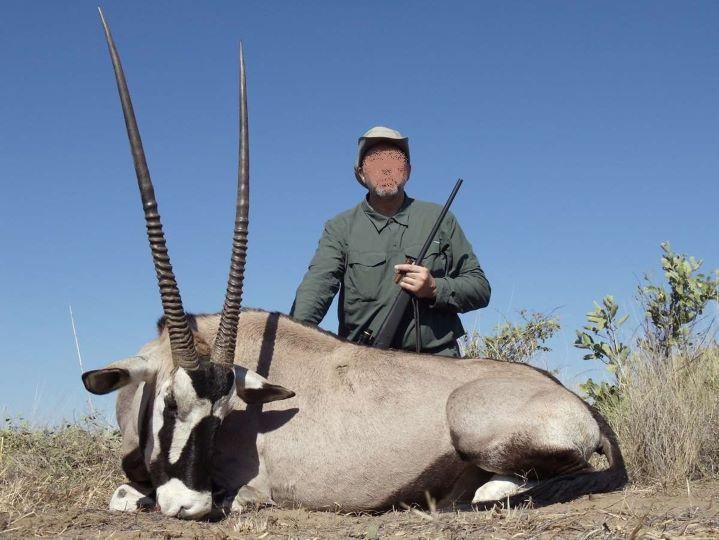
Key Takeaways
-
Budget African safaris provide affordable access to iconic wildlife, game hunting, and cultural experiences without compromising safety or essential comforts.
-
Top destinations for budget safaris include South Africa, Namibia, Kenya, Uganda, Botswana, and Tanzania, each offering renowned parks, group tours, and self-drive options.
-
Cost-saving strategies include traveling during low or shoulder seasons, opting for group tours, choosing self-drive adventures, and selecting budget lodges or camping options.
-
Most packages feature guided game drives, wildlife sightings (including the Big 5), and opportunities for ethical hunting, with some offering cultural immersion and community visits.
-
Accommodations are typically midrange or basic but prioritize cleanliness, safety, and proximity to key reserves, ensuring a comfortable yet value-driven safari experience.
-
Smart planning and flexible travel dates maximize budget and adventure, making memorable African safaris accessible to more travelers.
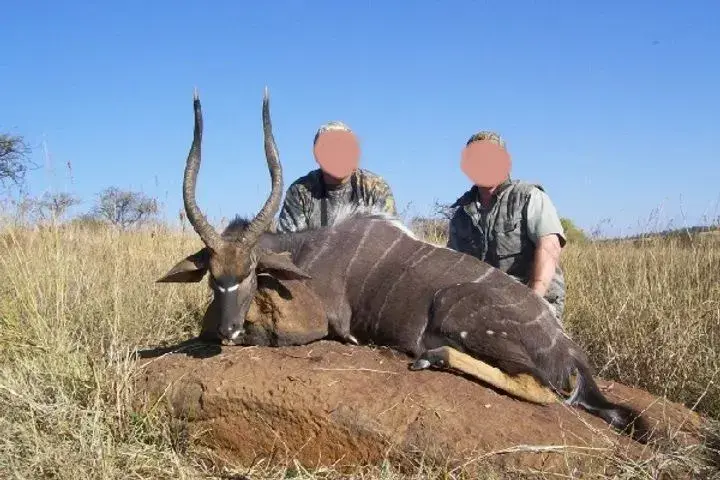
What Is a Budget African Safari?
A Budget African Safari provides travelers with an affordable way to explore Africa’s wildlife and landscapes, without missing out on essential safari experiences. Instead of high-cost luxury, budget safari packages focus on value, offering reliable accommodations, guided game drives, and core attractions in top destinations like South Africa.
Key Features of a Budget African Safari
-
Affordable Accommodation: Lodges, camps, or guesthouses keep costs lower while maintaining safe and comfortable stays. Most options use midrange or semi-luxury properties. Sometimes, simpler sites are chosen, but cleanliness and security remain priorities.
-
Essential Experiences: Authentic game drives and wildlife viewing in renowned reserves, such as Kruger National Park or the Masai Mara, are always included. Travelers spot the Big 5 in Africa, such as lions, elephants, and buffalos, and can opt for specific pursuits like Buffalo Hunting or specialized Game Hunting Safaris if available.
-
Professional Guides: Trained, experienced guides and rangers ensure safety and informative tours. Their expertise means visitors observe wildlife in prime locations, regardless of the package tier.
-
Group Advantages: Shared transfers and group departures reduce individual costs. Groups offer a chance to meet like-minded travelers while enjoying the adventure together.
-
Local Culture Explorations: Some packages place focus on cultural immersion. Participants may visit nearby villages, engage with local communities, or observe traditional customs, adding unique value to their trip.
Why Travelers Choose Budget Safaris
Travelers opt for Budget African Safari packages to make the most of their resources. For instance, couples and solo adventurers gain access to quality Game Hunting or big game viewing at a fraction of typical luxury prices. And while budget safaris cut costs, they don’t sacrifice major elements: wildlife sightings, professional game hunting guides, and iconic African landscapes.
What To Expect
Expect clear itineraries with must-see reserves and national parks, as well as activities like Buffalo Hunting, big game hunting, and cultural visits. Basic perks—such as good meals, safe accommodations, and expert-led drives—are always included. Even when someone chooses a no-frills option, comfort and main activities remain in focus.
Budget Safari Packages At a Glance
|
Feature |
Budget Safari |
Luxury Safari |
|---|---|---|
|
Accommodation Type |
Midrange/Semi-luxury/Basic |
Luxury lodges/camps |
|
Wildlife Encounters |
Big 5, Game Hunting |
Big 5, exclusive experiences |
|
Guided Drives |
Shared/local guides |
Private guides |
|
Cultural Activities |
Included in select packages |
Often personalized |
|
Typical Destinations |
Kruger, Masai Mara, Serengeti |
Private conservancies, top parks |
|
Price Range (per person) |
$150–$300+ per day |
$600+ per day |
Budget African Safaris give everyone—from new explorers to seasoned hunters—a way to immerse in Africa’s big game, beautiful reserves, and memorable cultures, all without overspending.
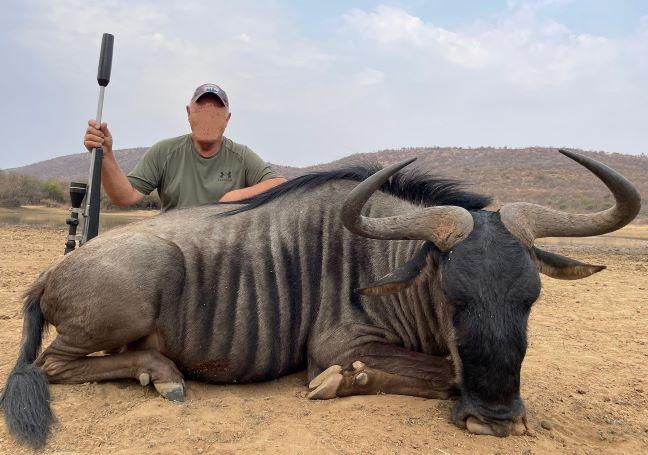
Best Destinations for Budget African Safaris
Searching for the best places to experience a Budget African Safari? We find that several countries stand out for affordable adventures where travelers enjoy access to big game hunting, iconic wildlife, and unforgettable landscapes—without overspending.
Top Countries and Parks to Consider
Choosing the right country matters when planning a budget-friendly African safari. These destinations offer recognized parks, affordable lodgings, and options like group safaris, self-drive routes, and access to premium wildlife areas:
-
South Africa
Kruger National Park tops the list for Budget Safari options. Kruger’s affordable park fees, self-drive flexibility, and plentiful rest camps make it one of Africa’s most budget-friendly wildlife destinations. Small reserves and public transport near cities, plus options for South Africa hunting packages, broaden flexibility.
-
Namibia
Etosha National Park stands out with low entrance fees, well-kept waterhole viewpoints, and budget campsites inside the park. Namibia supports budget travelers seeking classic Big 5 in Africa sightings and cost-effective self-drive safaris.
-
Kenya
Masai Mara National Reserve draws travelers for Budget African Safari group tours. With over 30 budget camps and high operator competition, Kenya allows entry to world-famous wildlife at competitive rates.
-
Uganda
Queen Elizabeth National Park and Murchison Falls National Park offer low park fees and fewer tourists than neighboring countries. Uganda suits groups seeking both wilderness and savings, and is well-known for unique experiences like baboon hunting excursions within regulated areas.
-
Botswana and Tanzania
Both countries give access to big game hunting experiences and public campsites in parks like Chobe and Serengeti. Self-drive options and camping in designated zones help keep costs down, yet wildlife sightings remain outstanding.
Wildlife You Can Expect to See
Wildlife forms the core of every Budget African Safari. Visitors at premier parks encounter iconic species along with unique regional fauna.
-
Big 5 in Africa (Lion, Leopard, Elephant, Rhinoceros, Cape Buffalo)
Sightings are common in Kruger, Etosha, Masai Mara, and Serengeti. Many parks offer game drives and walking safaris that focus on classic big game hunting targets.
-
Antelopes and Plains Game
Large herds of impala, wildebeest, zebra, and giraffe graze across open savannahs in Botswana, Kenya, and South Africa. Watching these animals from waterhole viewpoints in Etosha or Pilanesberg makes even short trips rewarding.
-
Predators and Primates
Lions and cheetahs prowl the Mara and Serengeti. Uganda features baboon hunting within controlled zones, plus gorilla and chimp trekking.
-
Birdlife and Unique Species
More than 500 bird species inhabit parks like Kruger, including eagles, storks, and kingfishers. Namibia rewards travelers with sightings of rare black rhinos and endemic desert wildlife.
|
Country |
Top Park |
Entry Fees (Approx) |
Notable Wildlife |
Unique Value |
|---|---|---|---|---|
|
South Africa |
Kruger National Park |
$20–$35/day |
Big 5, plains game |
Self-drive, cheap rest camps |
|
Namibia |
Etosha National Park |
$8–$12/day |
Big 5, rare rhino |
Waterhole viewing, scenic campsites |
|
Kenya |
Masai Mara |
$70–$80/day |
Big 5, predators |
Group tours, migration season |
|
Uganda |
Queen Elizabeth NP |
$40–$50/day |
Elephant, primates |
Fewer crowds, baboon hunting |
|
Botswana |
Chobe NP |
$10–$15/day |
Elephants, buffalo |
Water-based game viewing |
|
Tanzania |
Serengeti, Ngorongoro |
$60–$70/day |
Wildebeest migration |
Iconic migration, group safaris |
Every destination listed here delivers value for travelers choosing Game Hunting Safaris or traditional viewing tours. Affordable tours let’s enjoy the African wilderness, discover the key wildlife attractions, and take part in unique hunting experiences—without excess costs.
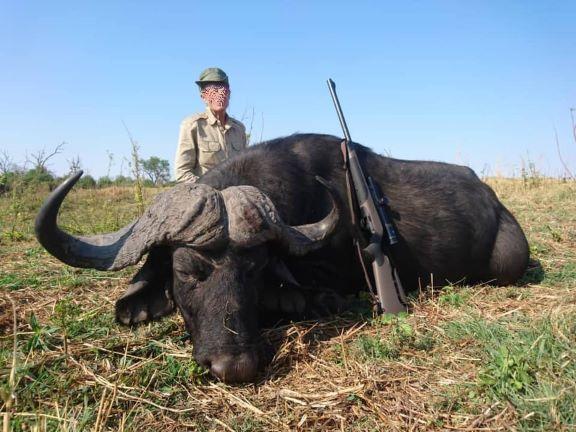
Types of Budget Safari Experiences
Exploring a Budget African Safari gives travelers options that fit many interests and budgets. Some experiences focus on classic wildlife viewing, while others blend adventure like big game hunting or cultural immersion.
Group Tours, Camping, and Self-Drives
Budget Safari travelers often pick from these core experiences:
-
Group Tours: These tours gather like-minded adventure seekers and often lower costs per person. South Africa Hunting groups or big 5 in Africa tracking tours work well for both novices and experienced hunters. Expect schedules packed with wildlife drives and chances to discuss sightings, including Game Hunting moments or Buffalo Hunting, with guides.
-
Camping Safaris: Camping cuts accommodation costs and deepens immersion in nature. Most Budget Safari camps use dome tents with essentials for comfort and safety. On-site participation in tasks like setting up tents or meal prep adds a personal touch. Locations vary from Kruger National Park in South Africa to remote northern Botswana.
-
Self-Drive Adventures: Some prefer the freedom of self-drive safaris, mostly in national parks like Kruger. We plan routes, book rest camps in advance, and enjoy game viewing at our pace. Self-drives work for those comfortable navigating Africa’s roads and wildlife reserves. Commonly, these fit smaller budgets and let us focus on favorite species, from classic antelopes to rare sightings like baboon hunting opportunities.
Budget Lodges vs. Mobile Tented Safaris
Choosing between budget lodges and mobile tented safaris impacts the comfort and price of a Budget African Safari.
-
Budget Lodges: Lodges provide comforts like beds, private bathrooms, and meals included. Most budget options offer simple yet clean rooms—sometimes shared. We find these across well-known reserves and hunting areas, perfect after a Buffalo Hunting day or Game Hunting Safaris outing. The biggest differences from luxury stays are fewer amenities and communal spaces.
-
Mobile Tented Safaris: These safaris position camps amid changing landscapes. The setup includes canvas tents, cots, and basic amenities that move with the itinerary, supporting big 5 in Africa observing or even African hunting schedules. Meals are prepped on-site. Mobile safaris often access wilder, less crowded habitats and suit travelers seeking an authentic, flexible budget safari atmosphere.
Both options put safety, guiding, and reliable transportation first, so whatever our choice, we experience Africa’s wildlife and landscapes at good value. And with the right planning, Budget Safari packages can be tailored for Game Hunting, wildlife tracking, or affordable adventure—matching our travel style and focus.
Costs and How to Save
Budget African Safari costs vary widely depending on when and how you travel, which destinations you choose, and your preferred style of adventure. Knowing the right timing and planning flexible itineraries let you experience game hunting, big 5 in Africa viewing, or even buffalo hunting—without breaking the bank.
When to Travel for Lower Prices
Traveling during Africa’s low or “green” season is the best way to secure affordable safari packages. From March to May in East Africa—covering Kenya and Tanzania—and May, June, or November in Southern Africa, safari rates can drop by 30–50% compared to peak season. Lodges and camps often offer reduced rates for these months, reflecting fewer tourists and increased availability.
Here’s a concise breakdown of seasonal pricing strategies:
|
Region |
Peak Season |
Low/Green Season |
Savings Potential (%) |
|---|---|---|---|
|
East Africa |
June–October |
March–May |
30–50 |
|
Southern Africa |
July–October |
May–June, November |
25–40 |
If your goal includes South Africa hunting trips such as buffalo hunting or baboon hunting, visiting in the shoulder months helps secure significant cost savings. And since certain parks like Kruger or Hwange offer excellent wildlife sightings year-round, the quality of your big game hunting or wildlife experiences rarely drops outside peak months.
Tips to Stretch Your Safari Budget
Maximizing value on your Budget Safari takes mindful choices before and during your journey. Here are key pointers that consistently help travelers save:
-
Opt for Group Tours: Group-based Budget African Safari packages cut individual costs by up to 40% vs private tours. You’ll share transportation, guides, and sometimes lodging, making it more affordable without sacrificing key game viewing moments.
-
Pick Self-Drive Options: In South Africa and Namibia, self-driving and using park-run accommodations slashes per-day costs. For example, Kruger National Park offers self-catering rest camps from $60–$80 per night. This approach fits both hunting and non-hunting itineraries.
-
Choose Essential Activities: Focus on core Game Hunting Safaris or iconic big 5 in Africa drives rather than optional extras. Most wildlife reserves include at least two daily activities in package costs.
-
Stay in Budget Camps or Bands: Skip luxury lodges in favor of basic bush camps or government “banda” units for savings. Facilities may be simpler, but safety and wildlife access remain high.
-
Travel with Flexible Dates: Adjusting your safari by even a week can open up cheaper rates, as some camps may offer flash deals for last-minute bookings during low demand periods.
-
Monitor Park Entry Fees: East African parks like Masai Mara or Serengeti charge steeper fees, so balance famous locations with lower-cost parks such as Uganda’s Queen Elizabeth or Namibia’s Etosha, especially when planning multi-park trips.
-
Utilize Reputable Budget Operators: Experienced safari planners use strong regional relationships to secure reliable guides, safe transport, and fair rates for hunting packages or traditional viewing tours alike.
And for those seeking African hunting listings or exclusive game hunting deals, keep in mind that bundling several activities—such as buffalo hunting or baboon hunting—often secures a better per-activity rate.
Smart planning, off-peak travel, and creative package selection ensure your Budget African Safari delivers memorable wildlife encounters, ethical game hunting, and the best possible value without overextending your budget.
What to Expect on a Budget Safari
Budget African Safari experiences deliver strong value and reliable wildlife action, even when traveling on a modest budget. We see more travelers every year enjoying the best of South Africa hunting and classic game viewing through carefully managed Game Hunting Safaris. Here’s what’s usually included when booking a tailored budget safari.
Accommodations and Amenities
Budget safari packages typically use midrange to basic lodges, guesthouses, or clean campsite setups. And most of these accommodations prioritize comfort, safety, and location—often near top game reserves or hunting concessions.
-
Rooms: Expect single, double, or dorm-style choices, with clean beds and private or shared bathrooms.
-
Meals: Packages commonly supply three solid meals per day, covering local dishes and familiar fare.
-
Facilities: Enjoy amenities like hot showers, safe storage, charging stations, and, in many cases, Wi-Fi.
-
Campsites: Prepared camping safaris use high-quality tents, cots, and basic necessary gear.
-
Service: Friendly staff and on-site guides support day-to-day needs, especially on bigger group safaris.
Rarely are luxury extras part of the budget package, but the essentials—safety, hygiene, and access—remain consistent.
Typical Safari Activities
On a Budget Safari, travelers access a broad mix of wildlife and hunting-focused activities, usually guided by experienced rangers or game trackers.
Wildlife Viewing and Game Drives
-
Big 5 in Africa: Expect regular outings tracking elephants, lions, buffalo, leopards, and rhinos in major reserves such as Kruger Park.
-
Guided Drives: Both sunrise and sunset drives maximize wildlife sightings and photography chances.
-
Nature Walks: Many parks allow walking safaris led by armed guides for a closer look at landscapes and animal behavior.
African Hunting Experiences
-
Game Hunting: Select packages feature ethical and regulated hunting opportunities for species like impala, kudu, or bushbuck.
-
Buffalo Hunting: In designated locations, big game hunting adventures—especially buffalo hunting—draw enthusiasts seeking challenging tracking.
-
Baboon Hunting: Some budget hunting listings offer small game opportunities, such as baboon hunting or culling, as part of population management.
Cultural Activities and Community Visits
-
Community Tours: Safaris often add visits to local villages for cultural immersion and understanding daily life in rural regions.
-
Conservation Education: Learn about the role of hunting in wildlife conservation, especially if you’re interested in african hunting or plan to book through Game Hunting Safaris.
Group Benefits
-
Shared Costs: By traveling in a group, costs for transport, guides, and activities drop, allowing for more days in the bush or additional safari outings.
-
Social Interaction: Small group trips create a casual, collaborative atmosphere, with stories and tips shared by similar adventurers.
So, when considering a Budget Safari in Africa, expect a blend of well-managed accommodation, essential comforts, expert-led outings, hunting options, and cultural experiences—all prioritized for cost-effectiveness without sacrificing quality or safety.
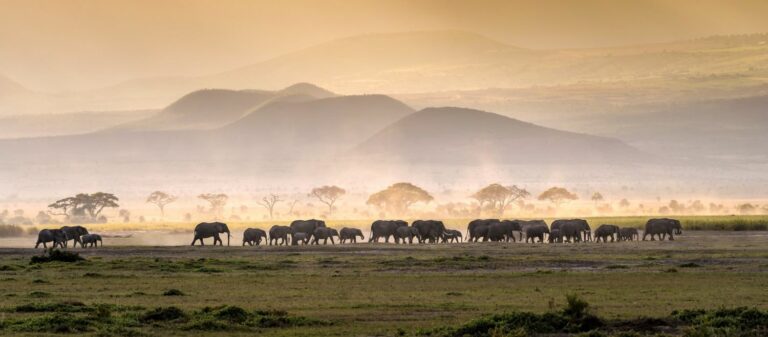
Conclusion
A budget African safari proves that unforgettable adventures and authentic cultural moments don’t have to come with a hefty price tag. With smart choices and thoughtful planning we can immerse ourselves in Africa’s wild beauty and vibrant traditions while keeping our travel expenses in check.
Let’s embrace the thrill of exploring iconic landscapes and diverse wildlife knowing that value and quality can go hand in hand. Our dream safari is within reach—affordable memorable and truly extraordinary.
Frequently Asked Questions
What is a budget African safari?
A budget African safari is an affordable way to experience Africa’s wildlife and landscapes without luxury prices. It typically includes basic or midrange accommodations, essential activities like game drives, professional guides for safety, and opportunities for cultural immersion. This type of safari is designed to maximize value and provide memorable experiences without breaking the bank.
Which African countries offer the best budget safaris?
South Africa, Namibia, Kenya, Uganda, Botswana, and Tanzania are top choices for budget safaris. These countries have affordable national parks and reserves like Kruger, Etosha, and Masai Mara, where you can experience incredible wildlife and landscapes at lower costs compared to luxury destinations.
What kind of wildlife can I see on a budget safari?
You can see a wide variety of wildlife—even on a budget safari. Expect to spot the Big 5 (lion, leopard, rhino, elephant, buffalo), antelopes, giraffes, zebras, predators like cheetahs and hyenas, and dozens of bird species. Major parks featured on budget safaris offer excellent wildlife viewing opportunities.
What types of budget safaris are available?
Popular budget safari types include group tours, camping safaris, and self-drive adventures. Group tours lower costs through shared expenses, camping safaris offer an immersive experience and save on lodging, and self-drive safaris provide flexibility for independent travelers seeking to explore parks at their own pace.
How can I save money on an African safari?
To save money, consider traveling during the low (green) season when rates are 30-50% lower than peak periods. Join group tours, choose basic accommodations or campsites, select essential activities, and monitor park entry fees. Flexible dates also allow you to take advantage of travel deals and price drops.
What should I expect from budget safari accommodations?
Budget safari accommodations generally include clean, comfortable rooms in basic lodges, guesthouses, or tents. Safety and a good location near wildlife areas are prioritized. Most packages include three meals a day and essential amenities, ensuring comfort without luxury extras.
Are budget safaris safe and reliable?
Yes, budget safaris prioritize safety and reliability. Reputable safari operators use professional guides, well-maintained vehicles, and accredited accommodations. Always choose tours with verified reviews and clear safety standards for peace of mind during your adventure.
What activities are included in a budget safari?
Typical activities include guided game drives, wildlife walks, and cultural experiences such as visits to local communities or conservation projects. Some budget safaris also offer ethical hunting experiences or self-drive options, depending on your interests.
Can I experience African culture on a budget safari?
Absolutely. Many budget safari packages include community visits, cultural tours, and educational opportunities, allowing you to interact with local people and learn about traditional customs without extra cost.
How do budget safaris compare to luxury safaris?
Budget safaris focus on essential experiences and value, while luxury safaris offer upscale lodges, gourmet meals, and exclusive activities. Both provide great wildlife viewing, but budget safaris are more cost-effective, making Africa’s wild beauty accessible to more travelers.
